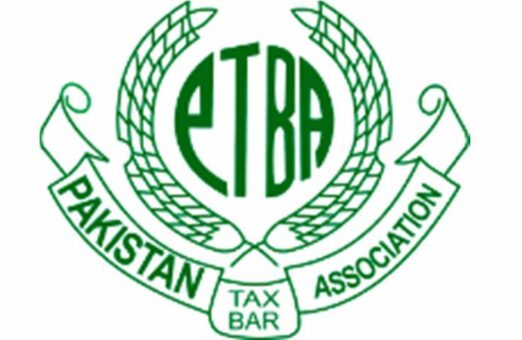The Pakistan Tax Bar Association (PTBA) has urged the government to include late filers into Active Taxpayers List (ATL) by deleting Section 182A of the Income Tax Ordinance, 2001.
The apex tax bar formally requested Finance Minister Asad Umar to withdraw Section 182A of the Income Tax Ordinance, 2001 in the forthcoming Supplementary Finance Bill for 2019.
The move aims to encourage potential taxpayers to fulfill their tax obligations and become a part of the tax net, even after the due dates for filing their tax returns have passed.
The PTBA, representing tax professionals and experts, highlighted the need for this change, emphasizing the importance of expanding the tax base and promoting voluntary compliance. According to the PTBA, the current Active Taxpayers List (ATL) based on the income tax returns filed for the tax year 2017 includes a total of 1,792,630 active taxpayers.
The Finance Minister and the government have been actively promoting the inclusion of every eligible taxpayer into the tax net, recognizing the significance of broadening the tax base for national economic development. The Federal Board of Revenue (FBR) has been making concerted efforts to address long-standing issues and amend tax laws to enhance the confidence of genuine taxpayers in the country.
The PTBA emphasized that the introduction of Section 182A in the Income Tax Ordinance through the Finance Act of 2018 was intended to ensure the timely filing of income tax returns. However, it pointed out that by the due date, only 1,552,287 returns were filed for the tax year 2018.
Section 182A of the Ordinance dictates that any individual or association of persons (AOP) filing their return of income after December 17, 2018, and companies filing after December 31, 2018, would not be included in the ATL for the respective year. The PTBA expressed concern that this provision is discouraging potential taxpayers from coming forward to file their returns after the due dates have passed.
Furthermore, the PTBA highlighted the harsh penalties imposed by Section 182A for failing to file returns within the due date. It argued that these penalties constitute double punishment for the same offense, which is constitutionally prohibited under Article 13 of the Constitution of the Islamic Republic of Pakistan. Several superior courts have ruled against double jeopardy.
The PTBA pointed out that the existence of Section 182A may hinder their efforts to persuade individuals and entities to become filers after the due dates have elapsed, resulting in counterproductive consequences. They cited the example of Section 214D of the Ordinance, which led to a significant backlog of tax audit cases, approximately 1.2 million in number. Eventually, the government had to introduce Section 214E in the Finance Supplementary Amendment Act of 2018 to address and close these pending cases.
The PTBA’s appeal to withdraw Section 182A of the Income Tax Ordinance highlights the need for a balanced and encouraging tax regime that promotes voluntary tax compliance, while simultaneously discouraging tax evasion. The Finance Minister’s response to this request will play a crucial role in shaping the future of tax policy and its impact on taxpayers in Pakistan.
